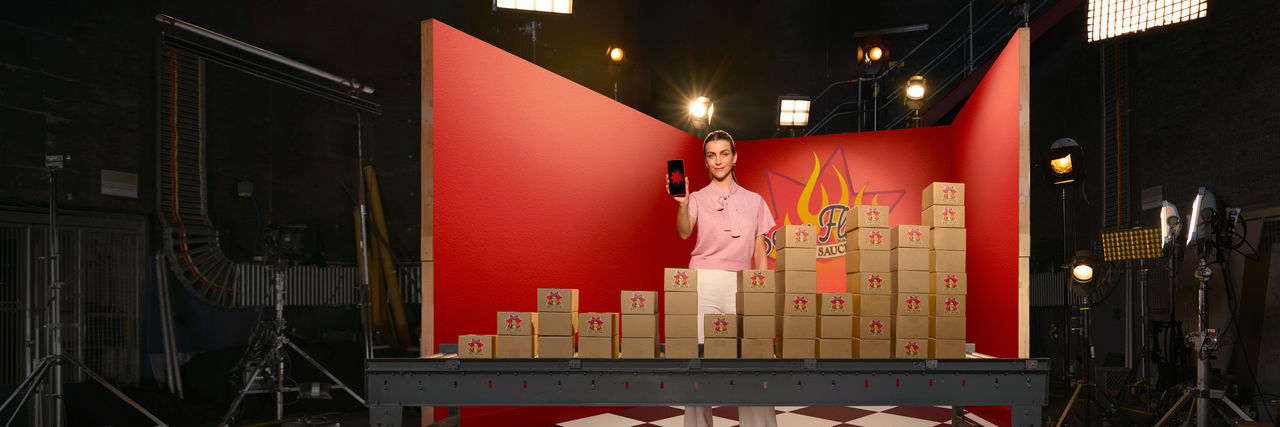Guide to sole trader and self-employed superannuation - NAB
Understanding sole trader superannuation
As a sole trader, you aren’t required to pay yourself a salary or make superannuation contributions. Your income is considered your business profit. Still, it could be wise to make super contributions as part of your financial planning.
What is sole trader superannuation?
Sole trader superannuation refers to the contributions made to a superannuation fund by people who are self-employed. It can be useful when building a retirement nest egg, as sole traders don’t have an employer to contribute on their behalf.
Sole traders may choose to contribute to superannuation to build financial security for the future, while benefiting from potential tax benefits.
How sole traders can contribute to their superannuation
There are several ways to make contributions as a sole trader, each with its own benefits and considerations. Learn about each option and you may wish to explore those that suit your own circumstances.
1. Personal contributions
- You can make voluntary personal contributions to your superannuation fund at any time. These contributions are subject to annual caps set by the ATO.
- Managing cash flow is important when planning super contributions. If your workload is inconsistent, sole trader business loans could help assist you with cash flow management.
2. Salary sacrifice
Salary sacrifice arrangements are generally used by employees. Sole traders may instead make personal contributions and claim a tax deduction, subject to eligibility.
3. Spouse contributions
Some individuals choose to make contributions to their spouse’s super fund. This may have tax implications depending on income levels and eligibility. For more information, refer to guidance from the ATO.
4. Government co-contributions
If you have an income that is below a particular threshold, you may be eligible for a government co-contribution when making personal super contributions to your fund.
5. One-off contributions
Sole traders can make one-off contributions, especially when cash flow allows – for example, once a successful project has been completed, or during a profitable quarter.
With flexible repayment options to help you manage cash flow more efficiently, NAB offers a range of business loans for sole traders. Remember to have the required documents for sole traders prepared before getting started.
Managing your superannuation contributions
The effective management of your superannuation contributions is key to building a secure financial future as a sole trader. Develop a clear strategy for making regular contributions and stay informed about any rules or limit changes.
Let’s look at a few of the most commonly questions asked when it comes to understanding how sole traders can manage their superannuation contributions.
What is the super cap for sole traders?
The super cap, also referred to as the concessional contributions cap, is the maximum amount that you can contribute to your superannuation account at a reduced tax rate. According to the ATO, the super cap from 1 July 2024 has been set at $30,000. This may change in the future.
For more information on current limits and eligibility, refer to the ATO website: concessional contributions cap.
How much super should I pay myself as a sole trader?
While some sole traders choose to contribute an amount similar to the Super Guarantee rate, the right amount for you depends on your financial situation and retirement goals. You may wish to speak with a licensed financial adviser or consult the ATO’s guidance for sole traders.
Strategies for managing and increasing your contributions
Keep the follow sole trader superannuation strategies in mind:
- Ensure you have a relevant sole trader bank account set up and separated from your personal account.
- Consider setting up regular, automatic contributions to your superannuation fund from this account to ensure consistency.
- Explore options like salary sacrificing or making personal contributions to maximise your retirement savings, and use the ATO’s calculator for super co-contribution to determine eligibility requirements.
- Remember to always keep track of your total superannuation balance.
Superannuation obligations for sole traders
As a sole trader, you are legally required by the ATO to meet specific superannuation obligations before you start operating. Failure to meet these obligations may result in penalties and missed opportunities for tax benefits.
How to set up superannuation as a sole trader
To set up superannuation as a sole trader, consider whether you need a business bank account, then start by choosing a super fund that meets your needs, or set up a self-managed super fund.
Complete the necessary application processes. Remember to keep accurate records of your contributions to comply with the ATO’s requirements for sole traders.
Some of these requirements may include:
- Paying tax at the individual income tax rate set by the ATO – this includes the total of your combined income, as the ATO considers no separation between you and your business.
- Registering for Goods and Services Tax (GST), if your annual turnover exceeds $75,000.
- Lodging a Business Activity Statement (BAS) once you have registered for GST and your annual turnovers exceeds $75,000.
- Pay As You Go (PAYG) withholding if you decide to hire any employees.
Tax considerations for sole trader superannuation
While sole traders aren’t required to pay themselves super, it’s important to understand the tax implications. Sole traders pay tax at a different rate to companies and any voluntary super contributions may be tax deductable, reducing your taxable income. This differs from the Superannuation Guarantee (SG), which applies to employers making mandatory contributions for their employees.
How to claim tax deductions on super contributions
Wondering how to pay tax as a sole trader and claim tax deductions? To claim tax-deductions on your super contributions, make sure that you meet the ATO’s eligibility criteria and maintain the required documentation. This also involves submitting your tax deduction notice to your super fund to maximise deductions.
Common mistakes sole traders make with superannuation
- Sole traders often overlook their superannuation obligations or fail to make adequate contributions.
- Additionally, some may not understand the importance of keeping detailed records, which can lead to complications at tax time.
Take control of your financial future as a sole trader with NAB
Ready to optimise your financial management as a sole trader? Explore NAB’s range of business banking products and solutions for sole traders and partnerships.
From tailored business accounts to superannuation solutions, we’re here to help at every stage on the way to securing your financial future.
Products and solutions for sole traders
Business transaction accounts
Whether your business is getting started or growing, we've got the right transaction account for you.
Loans and finance
Starting a business or looking to expand? Our range of business loans, overdrafts, equipment and trade finance options can help you achieve your goals.
Business savings accounts
Savings and deposit accounts designed for businesses. They're easy to use and will help you make the most of your extra cash.
Additional resources for sole traders
Do I need a separate business bank account?
Find out why it’s a good idea to keep your business and personal banking separate.
How to set up as a sole trader
Learn how to set up and register as a sole trader.
How to use our start-up costs calculator
Will the costs of starting your business outweigh the returns?
Get in touch
Contact us
Explore our business banking contact information and get support with a wide range of products, services and topics.
Visit a NAB branch
Our business bankers are located all around Australia.
Terms and Conditions
Apologies but the Important Information section you are trying to view is not displaying properly at the moment. Please refresh the page or try again later.
The information contained in this article is intended to be of a general nature only. It has been prepared without taking into account any person’s objectives, financial situation or needs. Before acting on this information, NAB recommends that you consider whether it is appropriate for your circumstances. NAB recommends that you seek independent legal, financial and taxation advice before acting on any information in this article.




